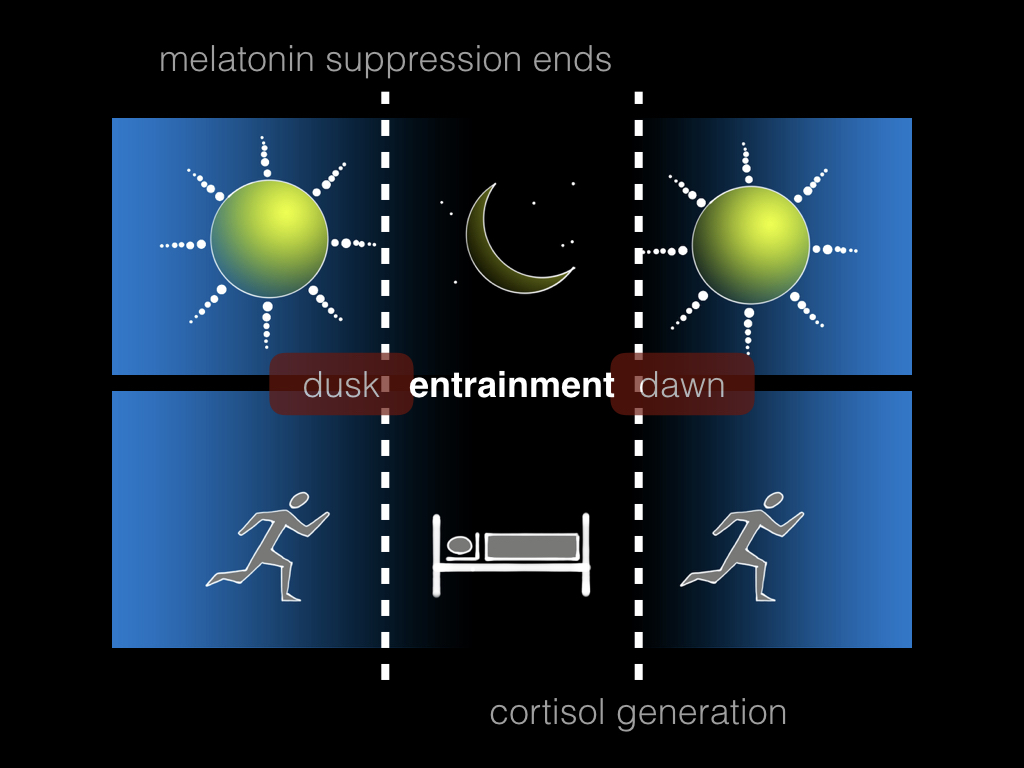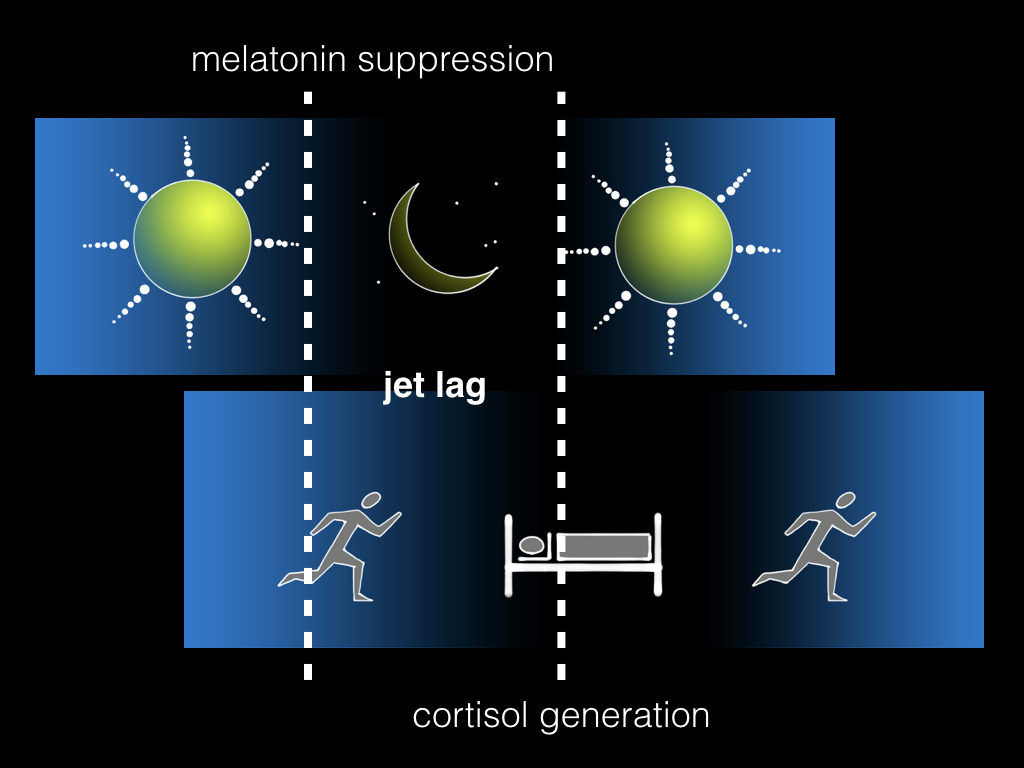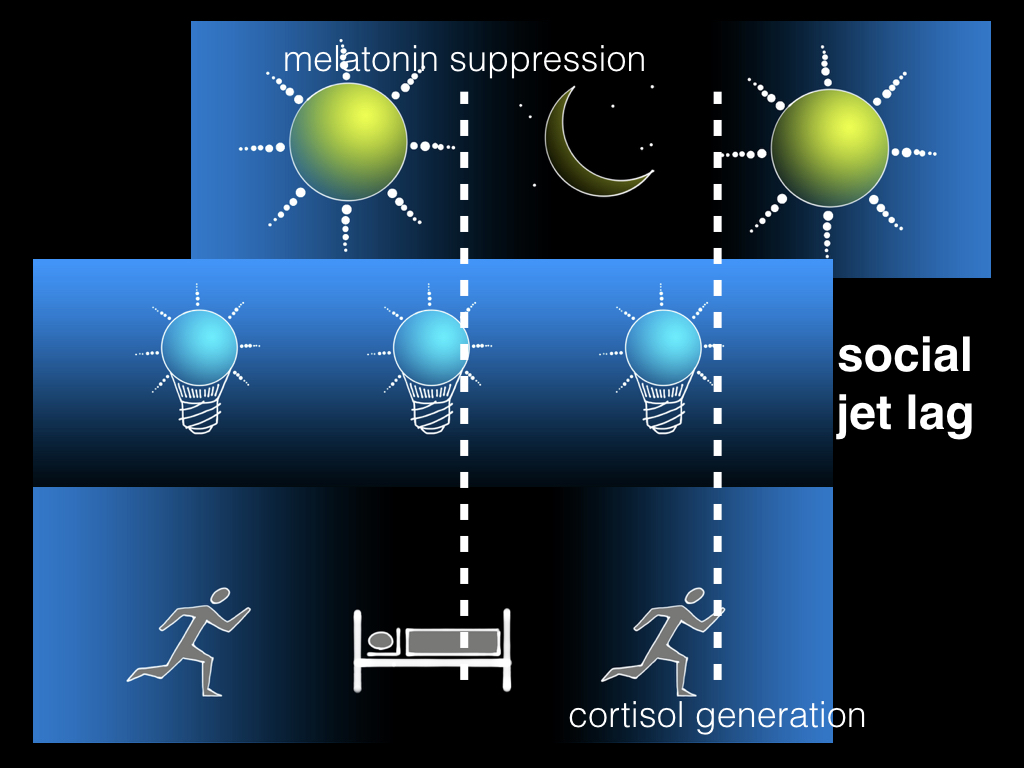Please note that I am not a doctor, nor a lighting researcher. I am a designer trying to understand how the gift of light works on our mind and bodies.
Light will help you heal faster! Light will improve your test scores! Light will reduce the symptoms of Alzheimer’s and Dementia! Light will help you relax and sleep better!
With new claims hitting the streets on a seemingly daily basis, making sense out of the Light & Health relationship can be a challenge. What is true, and what is marketing hype? Should you buy those orange tinted eyeglasses? Or that new lightbulb at Home Depot?
One of the most widespread problems we face with light and health is Social Jet Lag. Here’s a quiz to see if you might be suffering from this potentially damaging condition:
- Do you sleep late on the weekends?
- Do you stay up past sunset?
- Do you spend most of your day indoors?
- Do you use a computer, tablet or smart phone after dinner?
- Do you wake to an alarm?
If you answered “yes” to any of these questions, then you most likely suffer from social jet lag and you are probably missing out on some of the health benefits of light.
You read that right. I suffer from social jet lag, as evidenced by the fact that I am writing this post at 5:00am in the morning, called to work by the alarm clock on my wrist. And with links to obesity, addiction, cardio-vascular and metabolic diseases, memory and cognition, social jet lag is a condition we could all take a little more seriously.

The science, which we are just now beginning to understand, is wrapped around our entrainment to local time- our circadian rhythm. A number of hormonal and bio-chemical processes are regulated on a 24-hour cycle by an internal clock, which itself is tuned by signals from our eyes.
Our circadian clock is directly impacted by light.

When we’re entrained to natural daylight, sleeping when it is dark and active while bright, our body functions normally. But if we travel by plane to another time zone, it takes awhile for our circadian clock to reset itself to local time, change the schedule of hormones like melatonin and cortisol, regulate our body temperature, and get back to normal. That’s jet lag, and it isn’t that hard to fix.
Social jet lag, on the other hand, means we are constantly sending our body conflicting signals, or sending the brain not enough signals. We work indoors in the mornings with not enough bright light to set our clock. We stay up past dark with too much light from our computer or kitchen or bathroom (just five minutes of exposure can disrupt our rhythm). We lose our entrainment, we get out of sync. Once those hormones are out of sync, it becomes increasingly difficult for us to be awake when needed and to sleep when needed. We wake up in the middle of the night; we need caffeine to keep us going through the day.

And electric light- what I do- has been part of the problem for the last 100 years. Fortunately, that is beginning to change. I am writing a few more posts on this subject, so stay tuned. For now, here’s my advice: go for a 30-minute walk in the sunshine every morning, and wait for my next Light & Health post. Or if you want to skip the end, read a solid summary in this article (thanks, Uncle John!).
